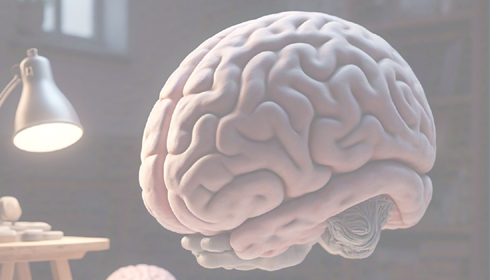
Decoding the Brain: Dr. Michael Meaney on Genes, Environment, and Neuroscience
In an exclusive Genomic Press interview, renowned neuroscientist Dr. Michael Meaney made transformational discoveries about the complex interplay between genes and the environment in developing brain health. Dr. Meaney, a James McGill Professor Emeritus and former Director of ASTAR Singapore's Translational Neuroscience program, has transformed our understanding of how early-life experiences affect genetic expression and brain development.
"I have always been genuinely fascinated by the search for the developmental origins of individual differences in brain development and function," says Dr. Meaney. "More broadly, and inspired by [Donald] Hebb, I bore a profound dissatisfaction with the conceptually flawed distinction between the influences of 'nature' and 'nurture."
Dr. Meaney's research began with a simple yet important question: What distinguishes individuals from one another? This quest led him to the expanding discipline of epigenetics, which studies how environmental variables influence gene expression without changing the DNA sequence. Through his pioneering work at McGill University and involvement in Singapore's GUSTO birth cohort research, he has shed light on how early-life experiences leave biological imprints that impact long-term health outcomes.
The consequences of Dr. Meaney's research are far-reaching. His research demonstrates that the brain's development is shaped not just by genetic blueprints but also by environmental factors, particularly during critical times of early life. This study challenges conventional narratives about brain health and advocates for a more nuanced view of the intricate interaction of genetic predispositions and life events.
"We too readily embrace narratives and technology that appeal to the general public, achieve headlines, and attract venture capital but are far too simplistic to capture the complex reality of brain health truly," according to Dr. Meaney. His statements emphasise the importance of taking a measured approach to understanding scientific results and applications.
Dr. Meaney's efforts go beyond academia, with significant consequences for public health policy. His findings support early intervention programs that have the potential to significantly improve brain development and mental health outcomes. The work presents fundamental challenges, including the transformation of scientific discoveries into practical public health measures. What types of early-life events promote resilience and mental health?
With over 650 publications to his name, Dr. Meaney is still at the forefront of neuroscience. His current research uses computational techniques to analyse large datasets in order to identify patterns in gene-environment interactions. "The large datasets of the day are an ideal playground for one seeking to document gene x environment interactions on health and well-being," he told me.
Dr. Meaney's innovative work continues to inspire researchers and influence the global conversation about human development. As we consider the ramifications of his discoveries, the task is to bridge the gap between study and real-world application to promote healthier, more resilient societies.